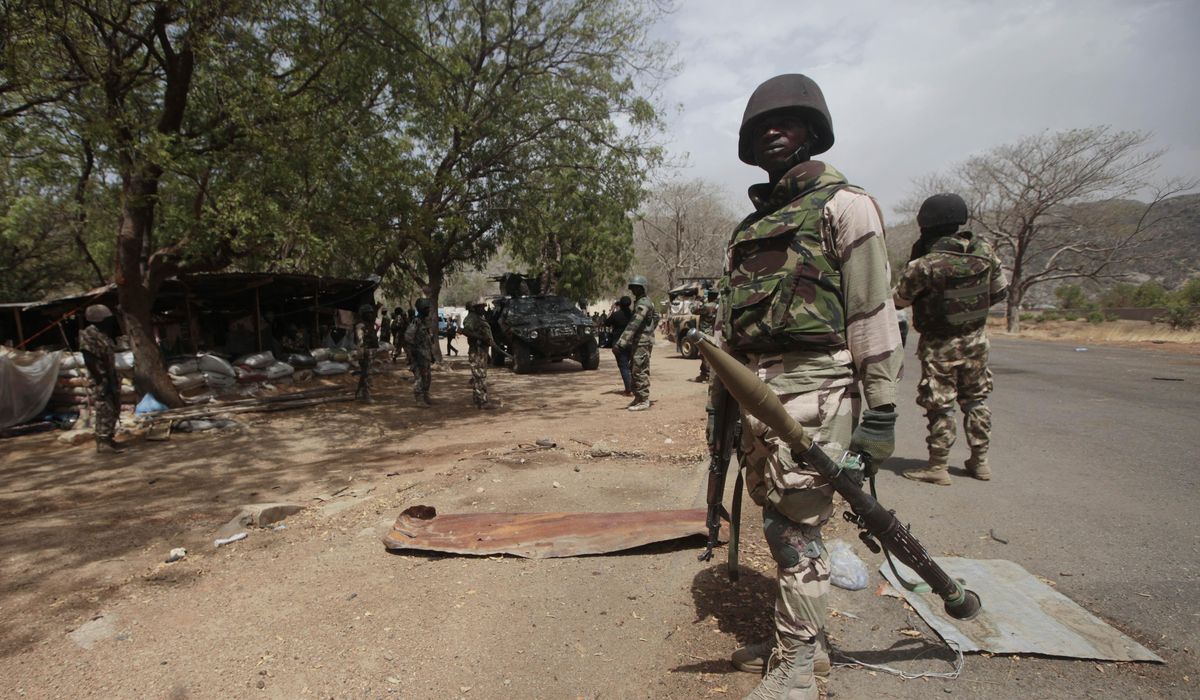


DAKAR, Senegal — The army in Niger says it used a targeted airstrike to kill a senior leader of the Boko Haram jihadi group, which has killed thousands of people in West Africa.
Ibrahim Bakoura was killed in an Aug. 15 strike in the Lake Chad region that killed “dozens of terrorists” and Boko Haram senior leaders, the army claimed in a state television broadcast Thursday. Bakoura, who was in his mid-40s, was “tracked for several weeks” before the strike, the army said.
Boko Haram, a homegrown group of jihadis from neighboring Nigeria that is considered one of the world’s deadliest armed groups, took up arms in 2009 to fight Western education and impose their radical version of Islamic law.
The conflict has spilled into Nigeria’s northern neighbors, including Niger, and resulted in the death of around 35,000 civilians and the displacement of more than 2 million others, according to the United Nations.
There should be skepticism about reports of senior militant deaths, said Wassim Nasr, a Sahel specialist and senior research fellow at the Soufan Center security think tank. He noted Bakoura has been reported dead at least three times in the past and governments have limited capacity to verify remote airstrikes.
Boko Haram split into two factions in the ensuing power struggle after the 2021 death of the group’s longtime leader, Abubakar Shekau, who was falsely reported dead several times. Bakoura came to power in 2022.
One faction is backed by the Islamic State group and is known as the Islamic State West Africa Province, or ISWAP. It has become notorious for targeting military positions and has overrun the military in Nigeria on at least 15 occasions in 2025, killing soldiers and stealing weapons, according to an Associated Press count, experts and security reports.
The other faction, Jama’atu Ahlis Sunna Lidda’awati wal-Jihad (JAS), also known as Boko Haram, has increasingly resorted to attacking civilians and perceived collaborators and thrives on robberies and abductions for ransom.
Bakoura’s killing is the latest blow to the network of armed groups in the region in recent weeks following the arrests of top Al-Qaeda affiliated leaders in Nigeria and the son of Boko Haram’s founder in Chad.
Experts say there is a renewed response from intelligence agencies in west and central African countries whose security leaderships have suffered embarrassing loses to armed groups this year.
“What the constant attacks did was cause military and security leaders embarrassment because it got to a point soldiers were running away on sighting ISWAP advances. The attacks inspired renewed response by militaries across the region,” said Taiwo Hassan, a security researcher at the Institute of Security Studies.
The arrest and killing of top leaders will translate to material gains in the regional fight against insecurity if the government in Niger ensures the groups do not carry out retaliatory attacks or rejuvenate elsewhere, Hassan said.
Ope Adetayo contributed from Lagos, Nigeria.
